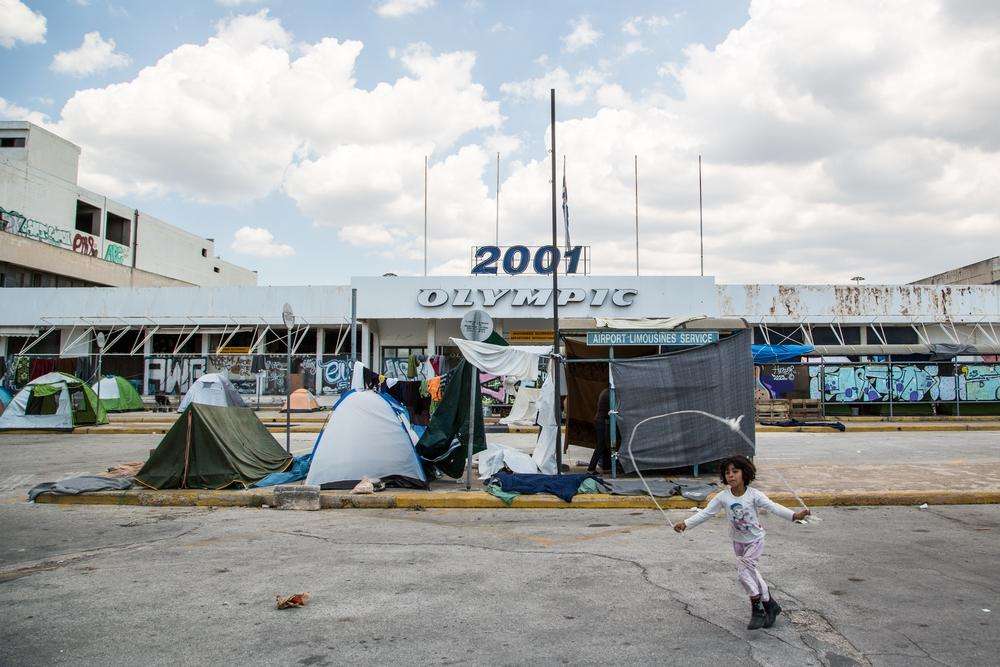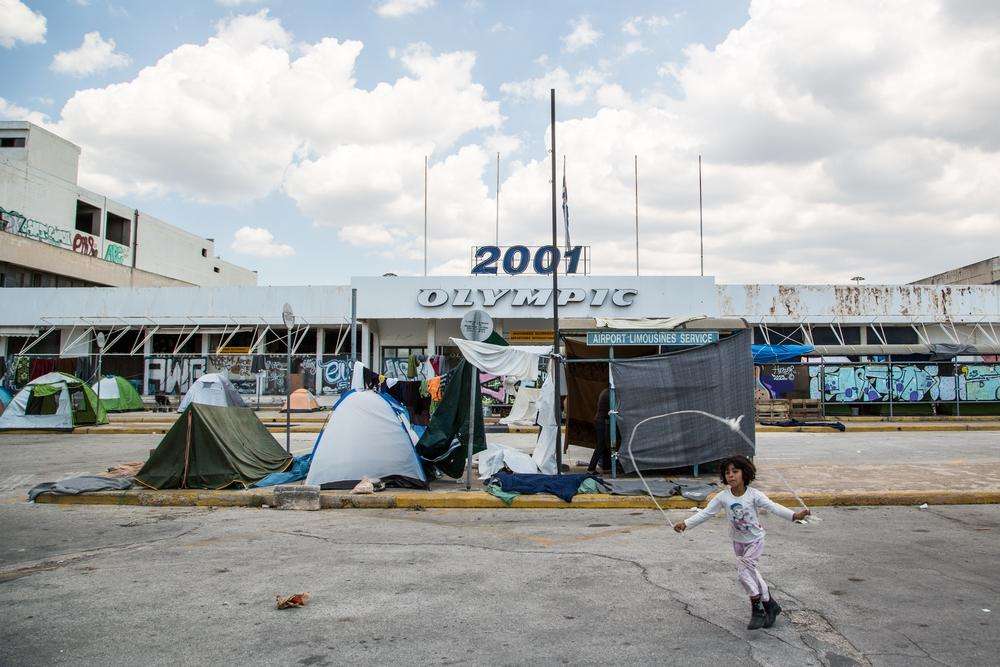When Eleni Kotsoni first started working at Elliniko refugee camp in Greece, she knew little about the people living there. Four months into managing Doctors Without Borders/Médecins Sans Frontières (MSF) mental health activities in Greece, she shares what she has learned about those trapped at the borders of Europe.
The first time I entered a refugee camp, four months ago in Athens, I was expecting to hear tragic stories of violence and conflict. I did hear them, but I was also surprised to hear stories about families and relationship problems, just like we all have.
At the beginning, when we started providing people with counseling, they needed to establish a relationship of trust with us and they talked about their everyday problems. As they opened up, and as the situation in the camps got worse, the stories they tell us have become increasingly harsh.
It’s not only the dreadful living conditions in the camps like Elliniko that undermines people. It’s also the uncertainty—the fact of not knowing where they will be next week, next month, or next year.
Some of the refugees have been here for months. They have lost all sense of time and a large part of their identity. Despite everything that the NGOs in the camps are doing, people still don’t have answers to even basic questions: Will my children go to school? Will we stay here or will we be transferred to another camp? They are not given any information, which has a significant impact on their mental health.
My colleagues and I hear people say things like "I could live in this camp and put up with these living conditions for two years if only I knew that after that I’d be able to continue my journey to northern Europe."
After the euphoria of their arrival in Greece, people began to realize that they were trapped here, without a future. We’ve seen pregnant women who no longer want their unborn children. We’ve seen an increase in domestic violence and people with suicidal thoughts.
Today, our teams are very worried about the cases of sexual violence we’ve heard about, including prostitution among young men. Tensions are also increasing between communities. Afghans say they feel like second- or third-class refugees, saying "People think that our country is not at war, that our lives are not at risk like the Syrians."
I live very close to Elliniko camp. It’s in the middle of a residential suburb, and consists of a disused airport terminal and two abandoned Olympic stadiums. It’s like an invisible bubble. Before I worked for MSF, I often passed by, knowing that refugees were staying there, but unable to imagine what was happening inside—the number of people, the conditions they were living in, the scope of their problems.
When I tell my friends what I see every day, they are very surprised. It’s as if these people don’t exist. But that’s exactly what they need: to be allowed to exist and to be recognized as fully rounded individuals with their own identities and life histories. Their identity seems to have been reduced to a single dimension; they are refugees and nothing else. They feel neglected and have a need to interact with the community around them.





